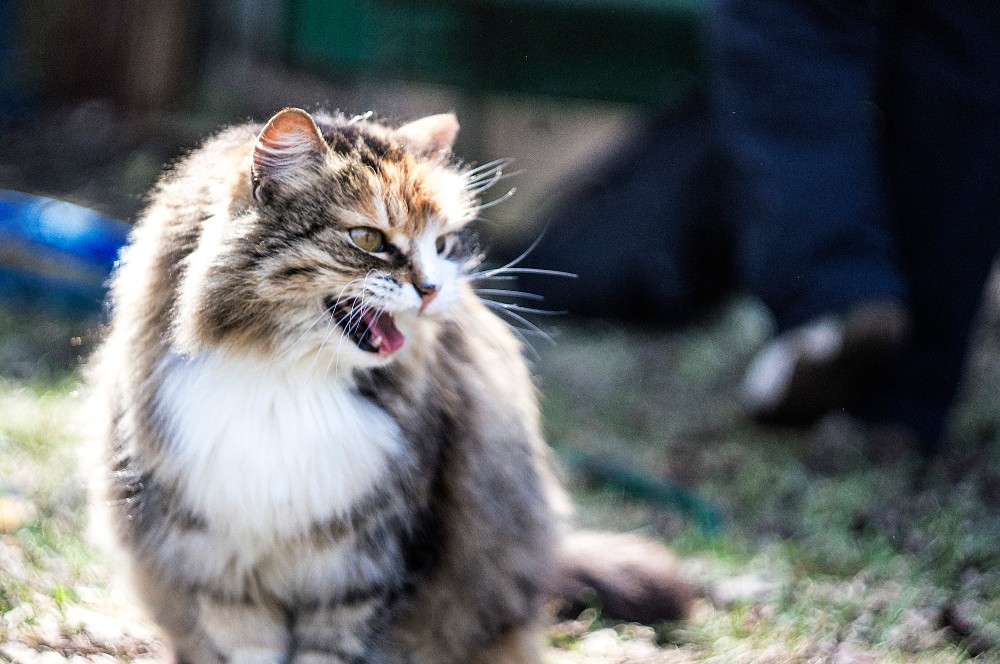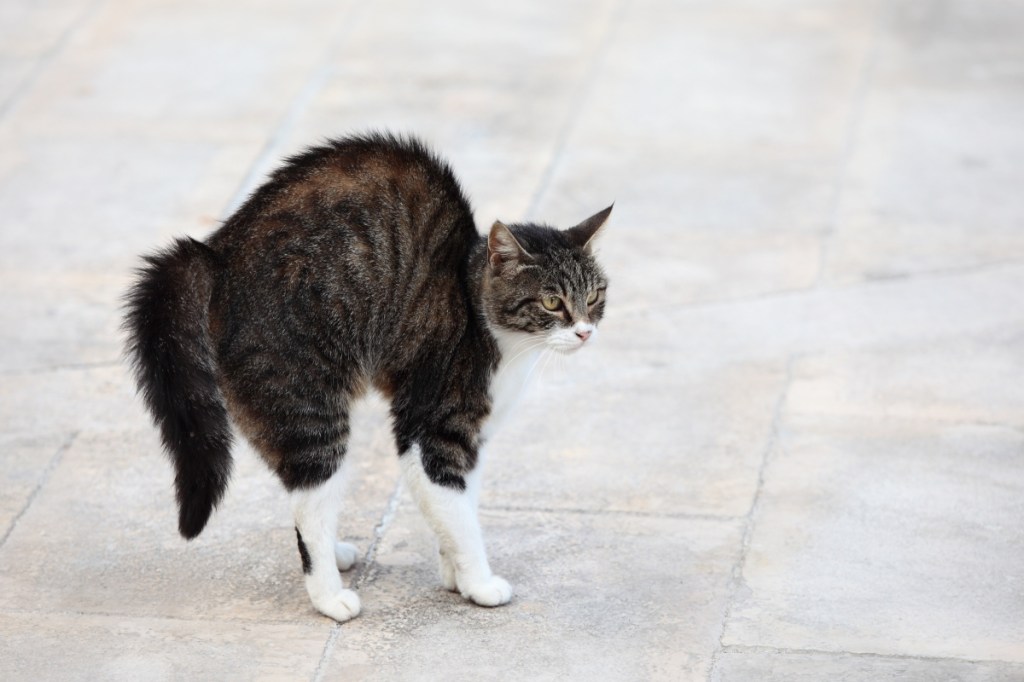Table of Contents
Cat hissing is an instinctive survival response typically prompted by a perceived threat. Your cat might hiss when she feels startled, afraid, vulnerable, or in pain. Hissing is a sign that aggression will ensue if the perceived threat doesn’t back off, and further provoking a hissing cat will likely get physical, leading to scratching and biting.
Where does hissing come from?
Many behavior experts believe cats in the wild developed the hissing sound to mimic that of a snake. Mimicry is a common survival behavior in the animal world. Some animals will mimic a predator as a deterrent and there’s no mistaking the distinct waring of a hiss.
Why do cats hiss?
A cat will react with a hiss to communicate fear, aggression, displeasure, or pain. With kittens, this might be as innocent as responding to a sudden loud noise or rough kitten play with a short hiss. Older cats will hiss in response to the undesirable presence or actions of another, whether it’s a “stranger” visiting your home, another pet, or even a current family member.
In the case of a visitor or welcoming home a new cat or dog, your cat may feel that her safety or resources (food) are threatened. With current pets or family members, she is likely trying to communicate displeasure, such as the sudden arrival of a playful dog. A cat may also hiss when she is in pain–being petted or getting a veterinary examination can trigger that response.
What to do when your cat hisses
In the short term, the safest thing to do is back away from a hissing cat to avoid getting scratched or bitten. Make sure your cat has plenty of escape routes and places to hide so she can retreat and calm down. If your cat hisses after you’ve been petting her for a while, she may have a low tolerance for physical contact, causing her to feel overstimulated and in need of a break.
Alleviating your cat’s fears and hissing
For the long term, it’s important to make sure your cat feels safe and comfortable. Give her time to acclimate to a new situation, whether she was newly adopted or you’re bringing home a new cat or introducing a new dog. Tell your guests and visitors to ignore your cat and allow her to approach them on her own time. If your cat’s hissing appears to be a pain response when you pet her in certain areas, it’s a good idea to visit the vet. Understanding your cat’s triggers (like being bothered by the dog) will help prevent unnecessary injuries.







